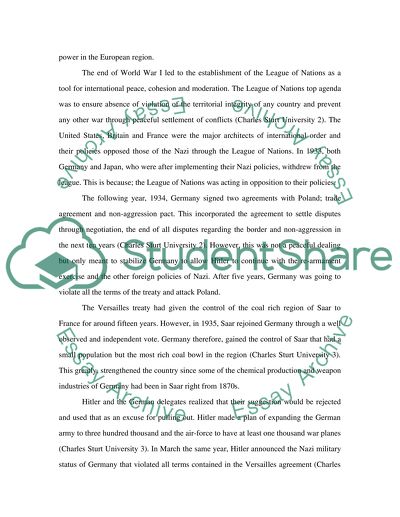Cite this document
(“Nazi Foreign Policy Essay Example | Topics and Well Written Essays - 1500 words”, n.d.)
Nazi Foreign Policy Essay Example | Topics and Well Written Essays - 1500 words. Retrieved from https://studentshare.org/history/1697841-nazi-foreign-policy
Nazi Foreign Policy Essay Example | Topics and Well Written Essays - 1500 words. Retrieved from https://studentshare.org/history/1697841-nazi-foreign-policy
(Nazi Foreign Policy Essay Example | Topics and Well Written Essays - 1500 Words)
Nazi Foreign Policy Essay Example | Topics and Well Written Essays - 1500 Words. https://studentshare.org/history/1697841-nazi-foreign-policy.
Nazi Foreign Policy Essay Example | Topics and Well Written Essays - 1500 Words. https://studentshare.org/history/1697841-nazi-foreign-policy.
“Nazi Foreign Policy Essay Example | Topics and Well Written Essays - 1500 Words”, n.d. https://studentshare.org/history/1697841-nazi-foreign-policy.


